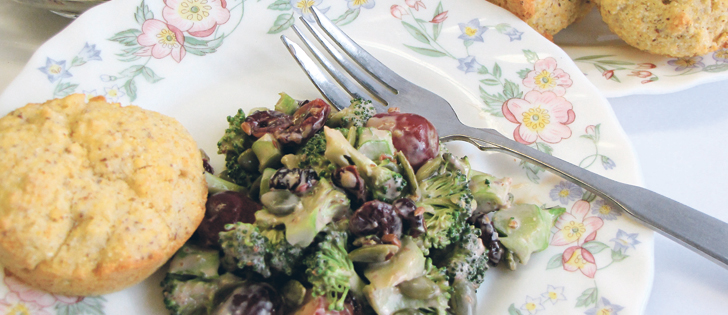Canada’s climate is credited with the higher oil content and superior oil quality in Canadian flaxseed, which contains nutrients that health experts recommend for better health and disease reduction.
Nutritionists recommend eating less saturated fat and trans fats and more polyunsaturated fatty acids. More than 70 percent of the fat in flaxseed is the polyunsaturated type.
Studies show a diet high in omega 3 fatty acid, in the form of alpha-linolenic acid (ALA), reduces the risk of heart disease and stroke by lowering cholesterol and preventing the buildup of harmful deposits in arteries.
Read Also

Students urged to consider veterinary medicine
Alberta government makes $86.5 million investment in University of Calgary to double capacity for its veterinary medicine program to address labour shortages in the field.
In 2014, Health Canada approved a health claim that read: “Eating five tablespoons (75 mL) of ground (milled) whole flaxseed per day over three meals helps reduce cholesterol.”
Flaxseed contains both soluble, cholesterol-lowering and insoluble constipation-relieving fibre. Just two tablespoons (30 mL) of ground whole flaxseed contain four grams of fibre, which is about 15 percent of the fibre required daily.
This dietary fibre and ALA can also reduce the risk of cancer. Studies have shown the ALA in flaxseed slowed the inflammation responsible for the growth of cancer cells, especially in newly diagnosed breast cancer.
The lignans and ALA in flaxseed help prevent inflammation that affects the body’s immune system. Flaxseed in the diet may be useful in the treatment of such immune disorders as rheumatoid arthritis, psoriasis and lupus.
Flaxseed also lowers blood glucose in healthy, young adults and may have positive effects on Type 2 diabetes.
For those diagnosed with celiac disease or gluten intolerance, flaxseed contains no gluten and is an excellent source of protein.
It contains numerous essential amino acids, which the body cannot produce and must be consumed. This is important for vegetarians who rely on plant sources to meet their daily protein requirements.
Adding whole or milled flaxseed or oil to baked goods such as muffins and breads is an excellent way to obtain the healthy nutrients found in flax. Whole yellow, golden and brown flaxseed all have the same nutrient content and add colour and crunch to foods, but are not easily digested. Milled or ground flaxseed provides the most nutritional benefit.
In baking, milled flaxseed can be substituted for all the fat used in recipes at a ratio of three to one. For example, 1 1/2 c. (375 mL) of milled flaxseed can replace 1/2 c. (125 mL) butter, margarine, cooking oil or shortening. Baked goods will tend to be denser and brown more rapidly.
For freshness, flaxseed is best stored in the freezer.
Using a cold-press process, flax oil is extracted from whole flaxseeds. The oil can be substituted for other oils in salads dressings, smoothies and hummus. Flax oil provides ALA, but no protein, fibre or lignans.
Broccoli Salad
- 6 c. chopped broccoli 1.5 L
- 3/4 c. sweetened dried cranberries or raisins 175 mL
- 1/2 c. pumpkin (pepita) seeds* 125 mL
- 1/4 c. finely chopped red onion 60 mL
- 2 tbsp. whole flaxseed 30 mL
- 1/2 c. sliced strawberries or whole red grapes 125 mL
Dressing:
- 3/4 c. light mayonnaise 175 mL
- 2 tbsp. raspberry vinegar 30 mL
- 2 tbsp. granulated sugar 30 mL
In large bowl, place broccoli, cranberries, pumpkin seeds, onion, flaxseed and strawberries or grapes.
In another bowl, combine mayonnaise, vinegar and sugar. Mix well, pour over salad, toss well. Refrigerate before serving.
* Sunflower seeds, chopped walnuts or nuts of your choice may be substituted. Yields six servings.
Source: Adapted from www.saskflax.com.
Each 1 c. serving contains 1 tsp. (5 mL) of flax.
Nutritional analysis: calories 319, total fat 20 g, saturated fat 4 g, cholesterol 0 mg, carbohydrates 30 g, fibre 4 g, protein 11 g, sodium 251 mg, potassium 681 mg.
Sweet Hometown Corn Muffins
These muffins are considered vegan because they are made with flax and soy milk.
- 1 tbsp. ground flaxseed 15 mL
- 3 tbsp. water 45 mL
- 1 1/4 c. plain yellow cornmeal 310 mL
- 3/4 c. unbleached all-purpose flour 175 mL
- 1/4 c. sugar 60 mL
- 2 tsp. baking powder 10 mL
- 3/4 tsp. salt 4 mL
- dash of cayenne
- 1 c. soy milk 250 mL
- 2 tsp. apple cider vinegar 10 mL
- 2 tbsp. canola oil 30 mL
Preheat oven 425 F (215 C.)
Coat a 12-tin nonstick muffin pan with cooking spray.
Whisk together ground flax and water in a medium bowl, let stand two minutes, to create a flax egg.
To flax mixture, whisk in soy milk, vinegar and oil, blend well. Add to flour mixture, stir until moistened. Do not over mix.
Spoon equal amounts of batter in each of tins, bake 11-12 minutes or until wooden pick inserted comes out clean. Place on wire rack five minutes before removing from tins.
>Note it is important not to stir once the mixture is just moistened because it will cause muffins to be tough and not rise properly.
Yields 12 muffins.
Source: Adapted from Nancy Hughes, www.saskflax.com.
Nutritional analysis for one muffin: Calories: 110 Fat: 3.5 g Saturated fat: 0 g Cholesterol: 0 mg Carbohydrates: 20 g Fibre: 1 g Protein: 2 g Sodium: 240 mg Potassium: 71 mg Folate: 14 mcg Sugar: 5g
For more information, visit healthyflax.org.
Betty Ann Deobald is a home economist from Rosetown, Sask., and a member of Team Resources. Contact: team@producer.com.















